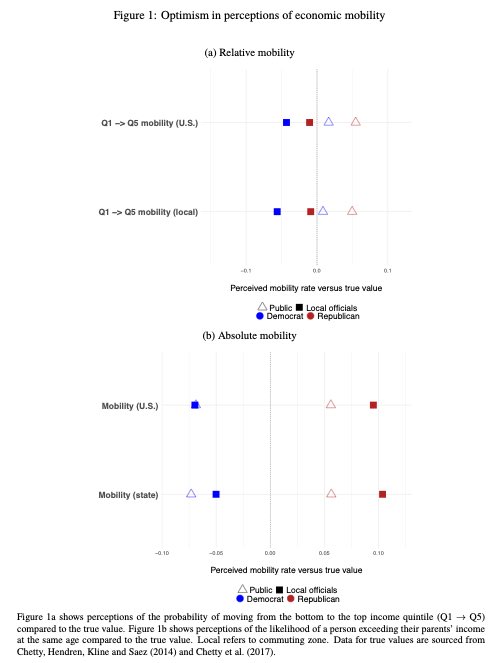
Republicans are more optimistic about (relative & absolute) social mobility, but no less accurate. Democrats (public & officials) understate social mobility. Dems think mobility is constrained by race & parent wealth; Reps think it’s hard work.
dartmouth.edu/~nyhan/mobilit…
dartmouth.edu/~nyhan/mobilit…
https://twitter.com/brendannyhan/status/1366580340450557957
In estimating chance of making it from the bottom quintile in childhood to the top quintile in adulthood, the public is more optimistic than policymakers. In predicting children’s chance of making more $ than their parents, Republican officials are the most optimistic 

Partisans (in the public & among officials) divide on factors that matter for social mobility. Everyone thinks education is important. Republicans are more likely to cite hard work & not having kids until marriage; Democrats are more likely to cite race & parent wealth 

Americans are known to overstate social mobility (the American dream). We find that they overstate relative mobility but slightly understate absolute mobility. Partisanship drives perceptions without one side being consistently closer to the truth: Reps overstate, Dems understate
• • •
Missing some Tweet in this thread? You can try to
force a refresh









